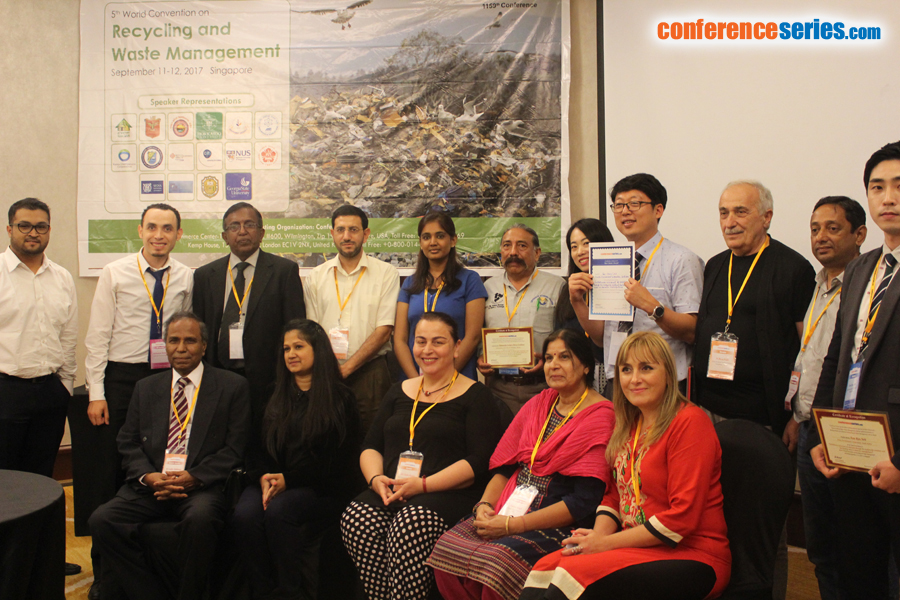
Debashis Chanda
University of Central Florida, USA
Title: Multi-spectral infrared spectroscopy for the detection and separation of recyclable plastics from municipal solid waste
Biography
Biography: Debashis Chanda
Abstract
The work aims to construct a prototype of polymer resin identification and sorting system based on mid-infrared (MIR) reflection spectroscopy. The MIR reflectance spectrum contains the chemical information of the material. This fingerprint, in contrast to the popular near-infrared (NIR) spectroscopy, contains much more molecular vibrational resonance information, which we will use to construct a multi-spectral and multi-dimensional library of all the plastics commonly encountered in the municipal solid waste stream. The main component of the system is the spectroscopic optical reading system. With this element, the reflection spectrum is measured to retrieve the chemical information of the sample. This important component must be carefully designed to ensure the acquisition of a high signal to noise ratio needed to accurately identify plastics under field-type working conditions. We designed and customized a commercial MIR spectrometer and a high power IR source. These units are manipulated by a control system using lab view-based or customized software, capable of synchronizing the steps required to identify and separate plastics, which include capture of the spectra, identification of the polymer resin, tracking of the sample position as it travels on the conveyor belt and making a decision based on statistical uncertainties to prompt a command at the separation stage. The reported multi-spectral and multi-dimensional fingerprint library can be used to identify almost all widely used plastic resin groups with almost 100% accuracy for the first time, as shown in our recent work.


